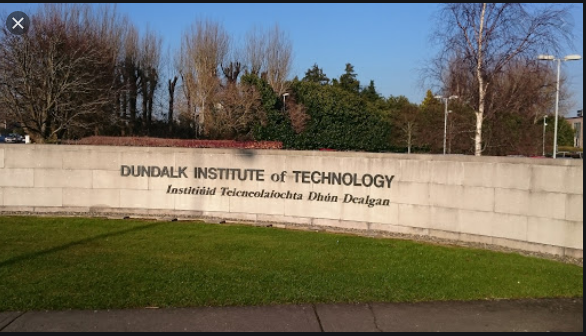Bachelor of Engineering in Civil Engineering
The principal aim of this course is to provide each student with the education and training necessary for entry into the civil engineering profession/industry at civil engineering technologist level. In particular, the course aims to develop each student’s civil engineering knowledge, know-how and skill and competence and the confidence to begin, in practice, to effectively take responsibility for the making of those judgments and decisions commensurate with the role of the civil engineering technologist.
Civil Engineers are involved in the assessment, planning, design, construction, operation and maintenance of physical resources such as road and rail systems, bridges and tunnels, docks, harbours, sea defences, airports, dams and reservoirs, water supply systems, pollution control systems, mines, and structures associated with energy supply. In addition, they are involved in ensuring the strength, stability and serviceability of building structures.
This course is designed to develop your ability to apply engineering principles and technologies to the solution of problems arising in the investigation, planning, design, construction, operation and maintenance of civil engineering works.
The coursee considers:
- The analysis, design, construction and maintenance of road and other transportation systems
- The occurrence and regulation of water and water flow
- The provision and maintenance of water supplies and sanitary services including environmental pollution control
- The analysis, design, construction and maintenance of civil engineering and building structures, including bridges and their foundations
- The financial and managerial topics common to all civil engineering courses
As a student on this course you will acquire skills in the following areas:
- Civil engineering drawing and detailing (manual and computer-aided)
- Materials specification and testing
- Surveying and setting out; Measurement and costing of civil engineering work
- Civil engineering work organisation
- Document preparation and interpretation
- Computer-aided analysis, design and draughting
Intakes
- Jan
- Sep
Application Processing Time in Days: 7
Application Process
Minimum English Language Requirements
| English Level Description | IELTS (1.0 -9.0) | TOEFL IBT (0-120) | TOEFL CBT (0-300) | PTE (10-90) | |
|---|---|---|---|---|---|
| Expert | 9 | 120 | 297-300 | 86-90 | |
| Very Good | 8.5 | 115-119 | 280-293 | 83-86 | |
| Very Good | 8 | 110-114 | 270-280 | 79-83 | |
| Good | 7.5 | 102-109 | 253-267 | 73-79 | |
| Good | 7 | 94-101 | 240-253 | 65-73 | |
| Competent | 6.5 | 79-93 | 213-233 | 58-65 | |
| Competent | 6 | 60-78 | 170-210 | 50-58 | |
| Modest | 5.5 | 46-59 | 133-210 | 43-50 | |
| Modest | 5 | 35-45 | 107-133 | 36-43 | |
| Limited | 4 | 32-34 | 97-103 | 30-36 | |
| Extremely Limited | < 4 | < 31 | < 93 | < 30 |
Job Opportunity Potential
Careers and Employability is DkIT's dedicated careers and enterprise service. We're here to support students and graduates identify their career goals, plan for their future and achieve their full personal and professional potential.
Your Careers Team
DkIT’s Careers & Employability Centre works to ensure that graduates of DkIT are self-aware, self-resourceful and work ready. To do this, we work with students from first year through to graduation in the area of Employability skills and Student Work Placement.
So whether you’re a student unsure of your next steps or looking for help with a CV, a graduate seeking work or an employer with a great opportunity, please do speak with us.
Placement Student Information - What I need to know
Work Placement is a compulsory assessed module of your programme of study.
Placement is a vital aspect of your learning journey at DkIT with a range of benefits for you including:
- Enhancing your third level study experience - experiential learning
- Putting learning into practice – making sense of theory
- Learning in “Real Time” - in a supportive, professional environment
- Professional Skills Development
- Personal Growth & Confidence
- Motivates for remainder of study period
- Test out career options
- Contributing to the work of an organisation in your chosen area of study
- Increases employability – through relevant work experience and references
- Build contact base for future employment
- Additional information is found below.
Work Placement — A Best Practice Guide for Students
Securing a Work Placement is similar to that of getting a job and therefore is a competitive process. Think about what an employer is looking for in a full time employee and how you can best match that criteria and add value to the organisation.
The list of resources below will be useful not only to your placement experience but also to your job hunting skills when you graduate.
Interviews
It is common practice that companies/ host sites will require students to attend interview to secure their placement. An interview can be a daunting experience for students but with focused preparation and research you can eliminate many of your concerns and fears.
Sample Interview Questions
Interview Preparation Guide
GradIreland — Graduate Job Interview Guide
PSW Opportunity
PSW is 2 years.
Admission Requirement / Eligibility Criteria
- Course Code: DK744
- Course Type: Full Time
- Course Level: Bachelors/UG Degree
- Duration: 03 Year
-
Total Tuition Fee:
32850 EUR
Annual Cost of Living: 10500 EUR
Application Fee: 50 EUR
Similar Programs
- BSc in Computing Systems and Operations (Software Development and DevOps) at Dundalk Institute of Technology
- BSc (Hons) in Computing Systems and Operations (Software Development and DevOps) at Dundalk Institute of Technology
- BSc (Hons) in Construction Project Management (add-on) at Dundalk Institute of Technology
- BSc (Hons) in Civil Engineering (Add-on) at Dundalk Institute of Technology
- BSc in Construction Management at Dundalk Institute of Technology
- BSc in Building Surveying at Dundalk Institute of Technology

